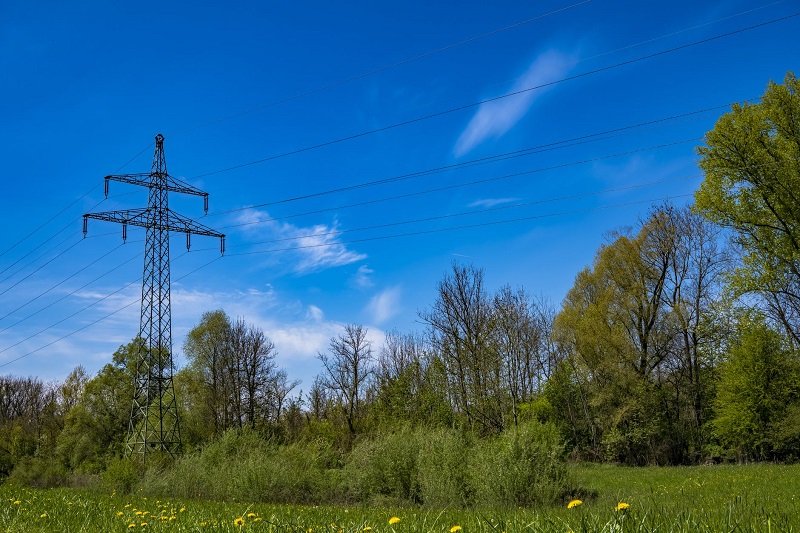The majority of people want utility companies to do better in helping them manage energy consumption and be more transparent in how they measure usage, using new digital tools to provide a better, more meaningful experience for customers, according to new research.
In a new study of 2,000 UK households, research shows the majority of people want utility companies to do better in helping them manage energy consumption and be more transparent in how they measure usage.
The report, ‘The Evolution Of Energy Companies: Satisfying Customers And Society’, from digital product agency Somo, explores the digital opportunity for energy suppliers to leverage technology and digital tools into the next decade and provide a better, more meaningful experience for customers.
The report provides an overview of current consumer perceptions of energy company tools and services, explores how companies can deepen customer connections and looks at the upheavals set to disrupt the supplier industry in the medium-to long term.
Key findings include:
- Only 23% of respondents with a smart meter say it has helped them to better monitor and understand their energy usage.
- 45% of respondents without a smart meter say installation would not change their behaviour at all regarding energy consumption.
- The main prompt for switching remains price (95% of respondents), followed by clarity around costs and charges (90%) and quality of customer service (84%)
Switching providers
Whilst the frequency of switching remains low, with only 16% of respondents changing gas or electric suppliers between six and 12 months ago, the main prompt for switching remains price, with 95% of respondents saying this is very important. This is followed by 90% who state importance on the clarity around costs and charges and 84% who cited quality of customer service as motivation to switch.
This follows a trend from suppliers focusing on acquiring new customers via price cuts, offers and promotions rather than giving existing customers incentives to stay. This infamous ‘loyalty penalty’ penalises long-standing customers for staying with their supplier, and has triggered mass disruption in the industry from new ‘challenger’ providers; more than 40 new electricity and gas suppliers have entered the market over the past four years.
Smart meters and consumption
To date, around 14.4 million smart meters have been installed in the 27.8 million households in the UK. However, the research suggests installation is no prompt to behaviour change – only 23% of respondents with a meter say it has helped them to better monitor and understand their energy usage. Meanwhile, 45% of respondents without a smart meter say installation would not change their behaviour at all regarding energy consumption.
Customer interaction
Currently, two thirds of respondents always or frequently use their supplier website or app to provide meter readings, and 41% use these tools to check their usage.A third always or frequently use a supplier’s digital tools to make a payment – although this percentage increases to 65% for the 25-34-year-olds. Only 22% of overall respondents regularly or always adjust their direct debit via such tools.Where a consumer’s perception of a supplier is often driven by the nature of their interaction with all brand touchpoints – digital platforms can be a major part of this customer experience. The research showed that for most issues, consumers want a digital solution; obtaining meter readings, paying bills, adjusting direct debit. But when it comes to complaints and contacting customer service, only 17% of respondents admitted to using digital contact points to contact customer service regularly. This suggests consumers still want the ability to talk to a human when they have a problem, despite best efforts to steer them to use automated chatbots and other tools. Therefore, for energy companies, It’s about offering the right kind of tools for the right pain point.
Ross Sleight, chief strategy officer at Somo, says: “The industry is facing intense competition from new providers unencumbered by legacy systems, processes, and with a mindset that is focused on customer needs. At a time when consumers are even more price sensitive than before, the winners will be brands who provide innovative pricing and service solutions for customers.
“Energy and utilities is a tough industry at the moment, but these challenges can be flipped into opportunities with the right business strategy. The alternative is to be defined by the market as a business that most customers barely notice – until they get a bill that’s calculated wrong, the meter reading is incorrect, or the price has gone up again. It’s clear customers want help with the increasing complexity of energy management, as electrification of cars and homes means more choices about tariffs, micro-storage of energy and the potential to feed into the grid. Suppliers that have developed strong brand relationships and trust, and enabled these through seamless digital customer journeys, will be the winners.”
Source: www.somoglobal.com

